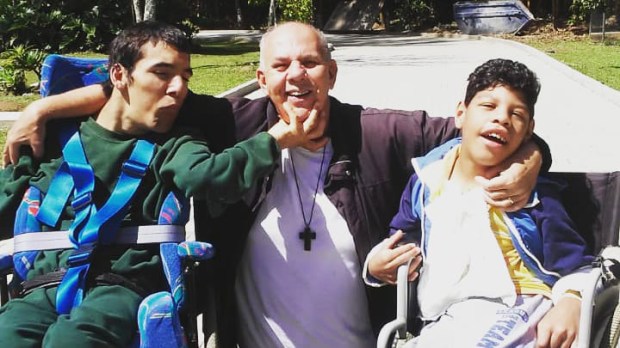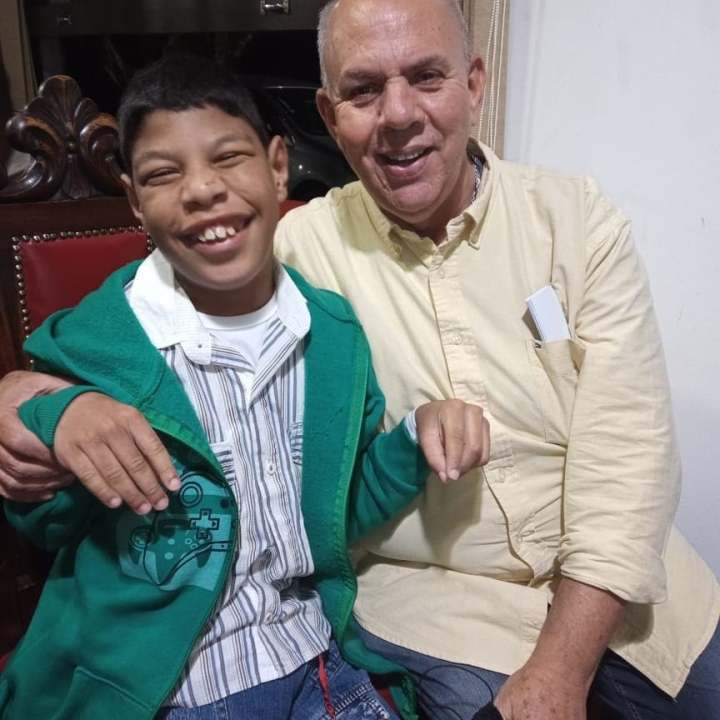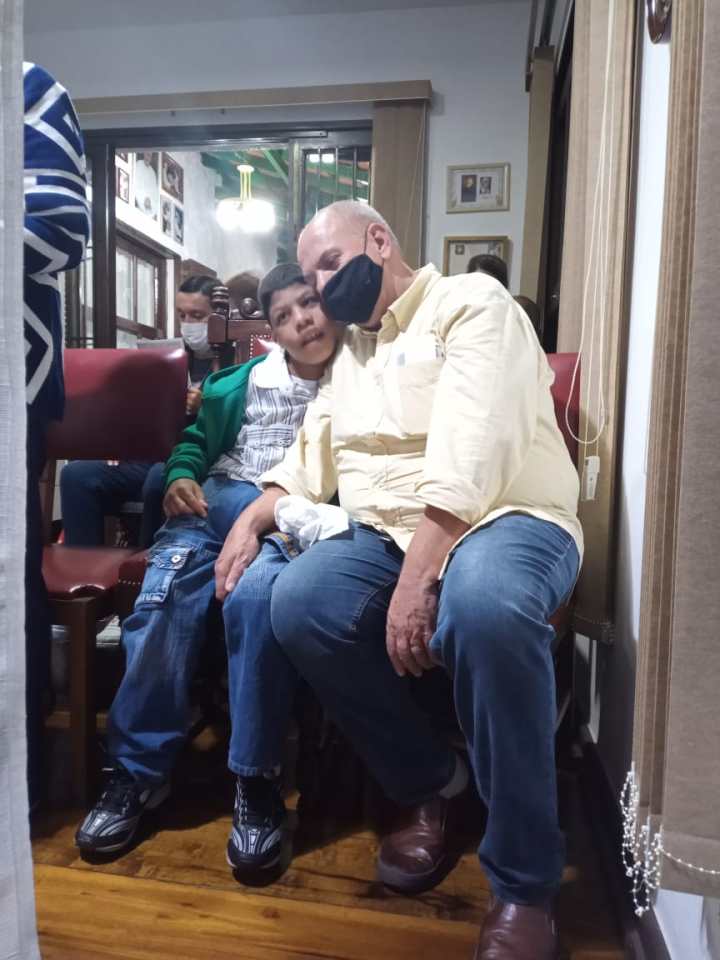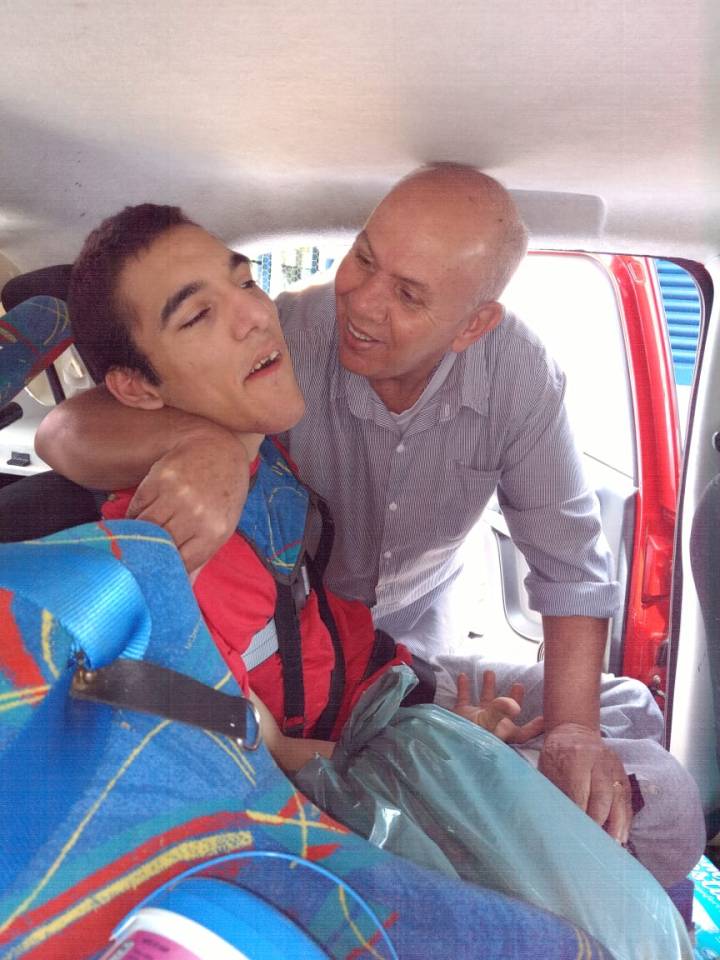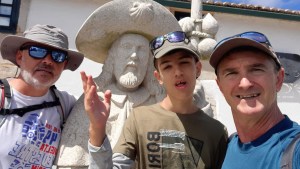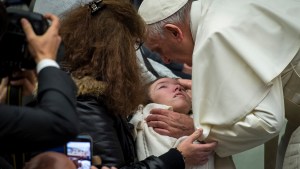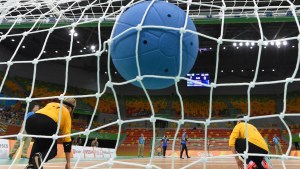Antonio Tavares is the founder of the Child Jesus (“Jesus Menino”) Community, which organizes the adoption of disabled children abandoned by their parents. Many of these children have cerebral palsy, diseases, and malformations resulting from failed abortion attempts.
Tavares and his 46 adopted children have already been given testimony at three World Youth Days: in Poland, Panama and Portugal. They were blessed by John Paul II and by Benedict XVI, and have already been received seven times by Francis.
Soon, they’ll open a house in Oporto, Portugal, where they’ll start adopting Portuguese children with the same characteristics. From there, they intend to reach the rest of Europe later on.
Aleteia interviewed him when he went to Barcelona for two of his children to receive a very specialized medical treatment.
What is the Child Jesus Community?
We adore the child Jesus in the form of these children of mine who are a grace for me. We are a group made up of celibate lay people, young priests, and families, who live in semi-detached houses and help each other to care for children who have been abandoned, many of them victims of attempted abortion.
In Brazil, we have a community in Petrópolis, where we started, where I’ve already adopted 46 children, many of whom are now grown up, and we have another one in Brasília, where my children number 36.
What happens in these homes?
We all help each other to take care of these children, who are very dependent and need a lot of care, and who will never stop being children. Our desire and mission is to become a copy of Joseph and Mary on earth.
We care for my children as if they were the Child Jesus himself. To this end, our life is fundamentally centered on prayer and work. Our homes are filled with silence.
Parenthood is sometimes experienced as a burden. How do you experience it, having to divide yourself among so many children?
Yes, I often hear the lament of parents who are waiting for their children to grow up and leave home. It’s different for me. They’ll never leave, and I am happy about that, because a child’s life is a grace.
I try to make it clear to them. We celebrate the birthday of each one of them. There are weeks when we have cake on three different days. Every night I stop by to give each one of them a hug.
Even when I’m traveling, like now, some of them don’t want to go to bed until they talk to me by teleconference.
In our society we have fewer and fewer children, and fewer and fewer children with disabilities are born.
Yes, as Pope Francis has said, we live in a throwaway culture. It seems that in everything we are obliged to look for selfish interest, for profit. For this reason, anyone who is vulnerable is excluded or eliminated.
Many of my children have been assaulted in their mother’s womb, even before they were born. Attempts have been made to eliminate them in the place that should be the safest place in the world, their mother’s womb.
Many Catholics would say the same about abortion, but not all take it seriously enough to change their lives, as you do. You’ve consecrated your life to those children forgotten by our world.
I was very young when I went to work in a house where many handicapped children lived. I was their teacher. The first day I entered that house, one of the children took me by the hand and asked me if I wanted to be his father.
That question stayed with me like a seed and took shape as time went by. Their life in that institution was hell. Almost without realizing it, I was incorporating them into my life. I took them to the movies, I took them to my parents’ house for dinner.
That day, my father took me aside and forbade me to take them again. He made it clear to me that they were not welcome, although today both my parents adore them and consider them as much their grandchildren as my siblings’ children.
And what led to this definitive change in your life?
The trigger for my vocation happened the day I stayed overnight at the house where these boys lived and saw the hell in which they lived. That injustice cried out to heaven. I went to ask God how he could allow it, and he told me to go and live with them.
That’s where it all started. I went to talk to the bishop and he gave me his approval and told me that he would walk with me.
God spoke to you loud and clear through his Church and through his favorite ones, the children.
Yes, just based on that certainty I left my parents’ house, quit my job and rented a small house in Petrópolis and went to live with Aleixandre, the one who the first day asked me if I wanted to be his father, and also with Marcelo and Miguel. They were the first three.
From the beginning I had friends who helped me, because since then we’ve lived in voluntary poverty and relying on providence and we’ve never lacked for anything. From time to time we even travel to the best hospitals in Europe to try to improve the lives of some of my children.
Tell us something about one of your children.
Jan is anencephalic. He’s 9 years old and has no brain. I adopted him as a newborn and the doctors told me he would die in 2 months. He only has water in his brain.
Surprisingly he has gained sensitivity in his hearing over time and reacts to the presence of people he likes.
His mother took abortion pills — 20 times more than she needed to have an abortion. She gave birth in the hospital and didn’t even want to hold him in her arms. She said he was a piece of meat and to get him out of her sight.
A doctor saw me on TV and called me. I went over. She gave him to me and I held him. They said he would die soon, but he’s still alive, and medicine is not able to explain it.
That’s a very tough story.
Yes, some people ask me if Jan’s life, so full of suffering, doesn’t make me feel bad, and they ask me if I wouldn’t prefer him to die. I answer them that I don’t see his suffering anywhere. He’s happy and communicates joy to me, to his caregivers, and to many who know him.
Not only is he happy, but he conveys joy to those around him through his simple witness in the world.
Your children’s lives show that Jesus overcomes sickness, evil and death.
Another of my children was born because his father stabbed his mother. She was dying and asked the doctors to save the child. The child was born with certain disabilities resulting from lack of oxygen during delivery.
This son of mine cannot call me daddy, because for him being a father is a bad thing, like what his biological father did. But he has gotten to know the Father in heaven, and although he’s blind, he’s a great musician who has sung for Pope Francis.
